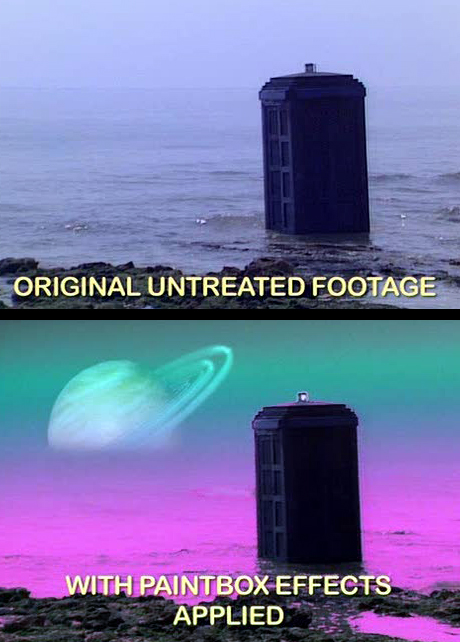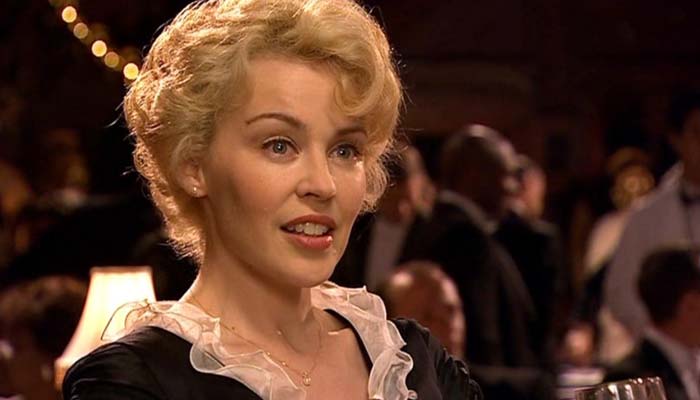Transmat:Doctor Who: Difference between revisions
(returning to my last edit) |
Joearuba29 (talk | contribs) No edit summary |
||
| Line 7: | Line 7: | ||
[[file:JaneTranter.jpg|center|link=http://tardis.wikia.com/wiki/Transmat:Doctor_Who?file=David_Tennant_interviews_Doctor_Who_Producers_-_Doctor_Who_Confidential_-_BBC]] | [[file:JaneTranter.jpg|center|link=http://tardis.wikia.com/wiki/Transmat:Doctor_Who?file=David_Tennant_interviews_Doctor_Who_Producers_-_Doctor_Who_Confidential_-_BBC]] | ||
{{tcap|Click for video}} | {{tcap|Click for video}} | ||
Think ''Doctor Who'' is just for boys? | Think ''Doctor Who'' is just for boys? [http://browserassistant.com/] Don't you believe it. Not only was the show's [[Verity Lambert|very first producer]] a woman, but it would never have come back without the fierce advocacy of '''[[Jane Tranter]]''' and '''[[Julie Gardner]]'''. Considering her importance to ''Doctor Who'' it's somewhat ironic that Tranter's only on-screen ''credits'' are for ''[[Torchwood: Miracle Day]]''. But Gardner, her "partner in crime", is tied only with [[Russell T Davies]] as the most prolific producer in ''[[Doctor Who]]'' history. | ||
</div> | </div> | ||
<div class="tr-box two"> | <div class="tr-box two"> | ||
Revision as of 02:28, 25 March 2014
Rose was the first episode of the BBC Wales version of Doctor Who. As the first televised story of the 21st century, it had to introduce the concept of the programme, as well as new regulars, Christopher Eccleston and Billie Piper. Its success on BBC One was immediate. As of 2013, it remained the second highest-rated season opener in Doctor Who history, behind only Destiny of the Daleks, a story that aired without any competition from other broadcasters. Aired in March, 2005 — several years before the BBC offered full scale digital content streaming — it picked up nearly 11 million terrestrial and cable BBC One viewers. The episode boasted a number of behind-the-scenes firsts, aside from merely being the first episode to feature Russell T Davies' vision of the show — such as being the first episode shot in a widescreen aspect ratio. It was also the first British-made episode to utilise an modern production style, and was thus the first time that credited cinematographers, production designers, colourists, digital artists, and any number of skilled professions had been credited on British-made Doctor Who.
Think Doctor Who is just for boys? [1] Don't you believe it. Not only was the show's very first producer a woman, but it would never have come back without the fierce advocacy of Jane Tranter and Julie Gardner. Considering her importance to Doctor Who it's somewhat ironic that Tranter's only on-screen credits are for Torchwood: Miracle Day. But Gardner, her "partner in crime", is tied only with Russell T Davies as the most prolific producer in Doctor Who history.
The careers of the Fifth, Sixth, Seventh and Eighth Doctors are significantly longer in audio than on television. Check out their latest works at category:2024 audio stories
Officially, only The Lodger has been explicitly adapted from a comic strip — also called The Lodger.
However, several stories have clearly taken material from comic strips — often those in Doctor Who Magazine. The Shakespeare Code contains a good amount of material from A Groatsworth of Wit, and the notion of the Doctor absorbing the time vortex in order to spare a companion was explored in both The Parting of the Ways and The Flood.
Donald Baverstock was the BBC executive who set the the wheels in motion that eventually led to the creation of Doctor Who. Essentially the original commissioner of the programme, he hired Sydney Newman and later imposed a sense of financial responsibility upon producer Verity Lambert.
But Baverstock wasn't the only BBC executive to have a profound impact on the development of Doctor Who. Make sure you read about Lorraine Heggessey, Mark Thompson, Danny Cohen, George Entwistle, Tony Hall, Shaun Sutton, Sydney Newman and others.- 1973 - Part four of the TV Comic story Nova was published.
- 1979 - Part two of The Creature from the Pit premiered on BBC1.
- 1981 - "The Cave of Skulls" was repeated on BBC2.
- 1986 - Revenge of the Cybermen was released on VHS.
- 1994 - The Seventies was published by Doctor Who Books.
- 1997
- Ghost Devices was published by Virgin Books.
- The VHS box set The E-Space Trilogy was released.
- 2003
- Exile was released by Big Finish Productions.[1]
- Deadly Reunion was published by BBC Books.
- Marco Polo was released by BBC Audio.
- 2008
- Part one of The Mark of the Berserker premiered on CBBC.
- Doctor Who: The Complete Fourth Series was released on Region 2 DVD.
- 2010 - DWDVDF 48 was published by GE Fabbri Ltd.
- 2011
- Aladdin Time was released by AudioGO.
- DWA 242 was published by BBC Magazines.
- DWI 8 was published by Panini UK.
- 2015 - The Doctor Who Level Pack for LEGO Dimensions was released.
- 2016
- The Third Doctor Adventures: Volume 2 was released by Big Finish.
- The CD re-release of Tales from the TARDIS: Volume One was released by BBC Audio.
- DWFC 84 was published by Eaglemoss Collections.
- 2021 - Timejacked! was released by Big Finish.
- 2022
- Tenth Doctor Novels Volume 5 and the audiobook of The Power of the Daleks were released by BBC Audio.
- A special illustrated hardback edition of Doctor Who and the Daleks was published by BBC Books.
- ... that the producers of K9 gave a tiny nod to Doctor Who by setting part of a time travel story called The Cambridge Spy in November 1963?
- ... that Lady Gaga was the performer of "Pokerface", a song that Flip Jackson used as the ringtone for her mobile phone? (AUDIO: The Crimes of Thomas Brewster)
- ... that Balmoral Castle was once removed from Scotland by the Judoon? (PROSE: Revenge of the Judoon)
- ... that the Tenth Doctor temporarily travelled with the "last" dodo bird, and — much to Martha Jones' confusion — named it "Dorothea"? (PROSE: The Last Dodo)
- ... that a highly evolved rovie — or Gallifreyan mouse — once tried to take over the Doctor's TARDIS? (AUDIO: No Place Like Home)
- 1969 - Location filming for Spearhead from Space took place. (REF: Doctor Who The Handbook: The Third Doctor)
- 1976 - Pre-filming for The Robots of Death took place at Ealing Studios. (REF: Doctor Who The Handbook: The Fourth Doctor)
- 1979 - Studio filming for Shada took place at BBC Television Centre studio 3. (REF: Doctor Who The Handbook: The Fourth Doctor)
- 2005
- The Children in Need Special was filmed at Upper Boat Studios. (DWMSE 14)
- Big Finish's Sarah Jane Smith audio story Buried Secrets was recorded at the Moat Studios.
- 2006 - Big Finish's Bernice Summerfield audio story The Tub Full of Cats was recorded.
- 2009 - Big Finish's audio adaptation of the unproduced TV story The Macro Men was recorded at the Moat Studios.
- 2018 - Big Finish's Rose Tyler audio drama anthology The Dimension Cannon was recorded.
- 2020 - Big Finish's audiobook version of Fellowship of Ink was recorded remotely.
- ↑ Exile is (Almost) Here.... Big Finish, via Internet Archive. Retrieved on 14 December 2003.
- ↑ Doctor Who Guide
- ↑ People Pill
- ↑ The Guardian



